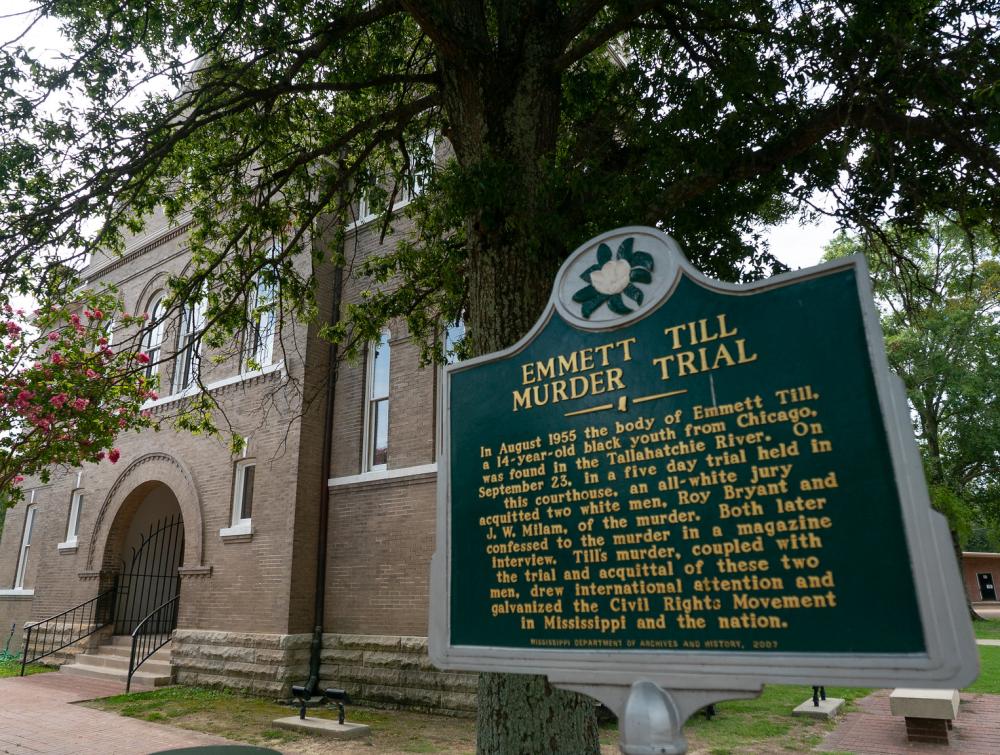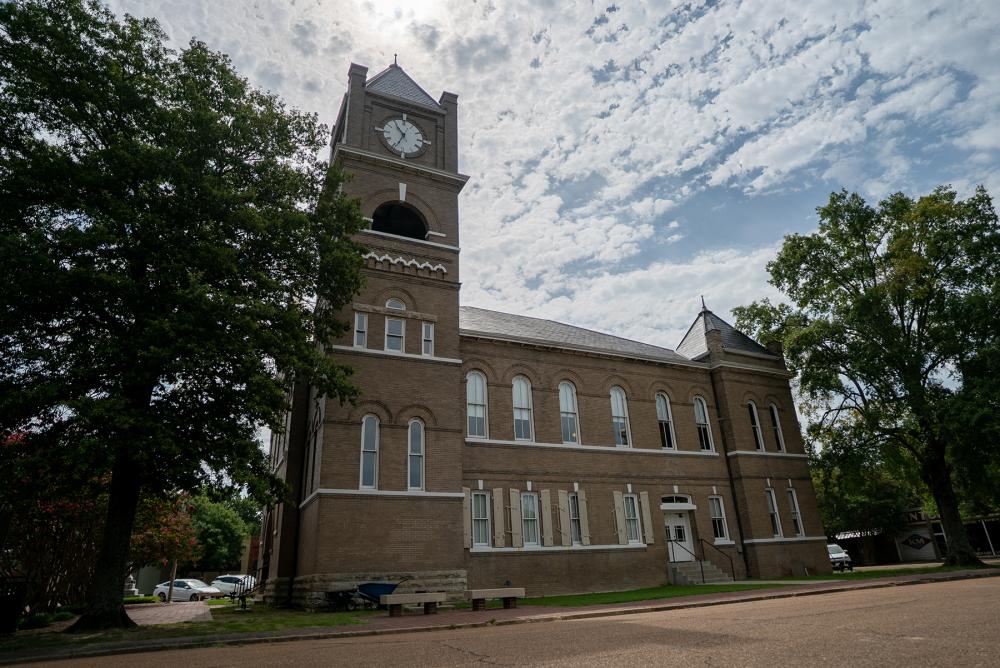New national monument honors Emmett Till and his mother

Emmett Till historical marker outside of the Tallahatchie County Courthouse in Sumner, Mississippi where the trial for Emmett Till’s murder was held.
NPCA
Monument spans three sites in Illinois and Mississippi, marking locations that are a crucial and a powerful part of America’s civil rights history
In August 1955 in Money, Mississippi, a Black teenager named Emmett Till was brutally murdered by two white men who accused him of flirting with a white woman. His body was found in a river and brought back to his hometown of Chicago at the request of his mother, Mamie Till-Mobley, who held a public, open-casket funeral so that the world could see the brutality her only son suffered. A month later, an all-white jury found the killers not guilty.
Decades after Till’s death, in 2017, the woman who accused Till of flirting with her, allegedly recanted her testimony in an unpublished memoir. In 2022, a grand jury in Mississippi declined to indict her for her role in the crime, but that same year President Biden signed the Emmett Till Antilynching Act into law, finally making lynching a federal hate crime.
On July 25th, 2023, President Biden designated a national monument honoring Emmett Till and his mother, Mamie Till-Mobley.
The Emmett Till and Mamie Till-Mobley National Monument will span three sites in Illinois and Mississippi, places that are a crucial and a powerful part of America’s civil rights history. This designation will ensure that the life and legacy of Emmett Till and his mother, who became a civil rights icon after his death, will not be forgotten — and serve as a reminder of the ongoing fight for equality and civil rights.
The sites include the Roberts Temple Church of God in Christ in Bronzeville, a historically Black neighborhood in Chicago. That is the church where Till’s funeral was held in an open casket ceremony.

Located in the Bronzeville neighborhood of Chicago, Illinois, Roberts Temple Church of God In Christ is where Emmett Till’s open-casket funeral was held.
NPCA
Another site is Graball Landing in Tallahatchie County, Mississippi. That is where locals believe that Till’s body was pulled from the Tallahatchie River. The site has become the focus of national controversy as its been vandalized several times, with signs from this spot being stolen, replaced, shot, replaced again, and shot again.
And the third site is the Tallahatchie County Second District Courthouse in Sumner, Mississippi, where an all-white jury acquitted Roy Bryant and his half-brother J.W. Milam, the two men who kidnapped and killed Till. The courthouse was added to the National Register of Historic Places in 2007 for its role in the Till story and its Richardsonian Romanesque architecture.
The Emmett Till and Mamie Till-Mobley National Monument will be managed by the National Park Service, ensuring its preservation and accessibility to the public. As visitors learn about the courageous stories of Emmett Till and Mamie Till-Mobley, it is hoped they will be inspired to take action towards a more inclusive and equitable society.

The Tallahatchie County Courthouse in Sumner, Mississippi.
NPCA
This latest designation adds to President Biden's commitment to preserving historic sites and promoting social justice. The president should continue making sure public lands are inclusive and representative of our nation.




